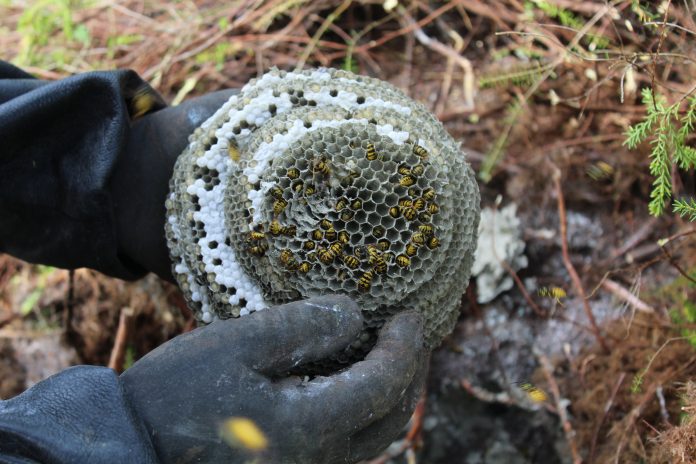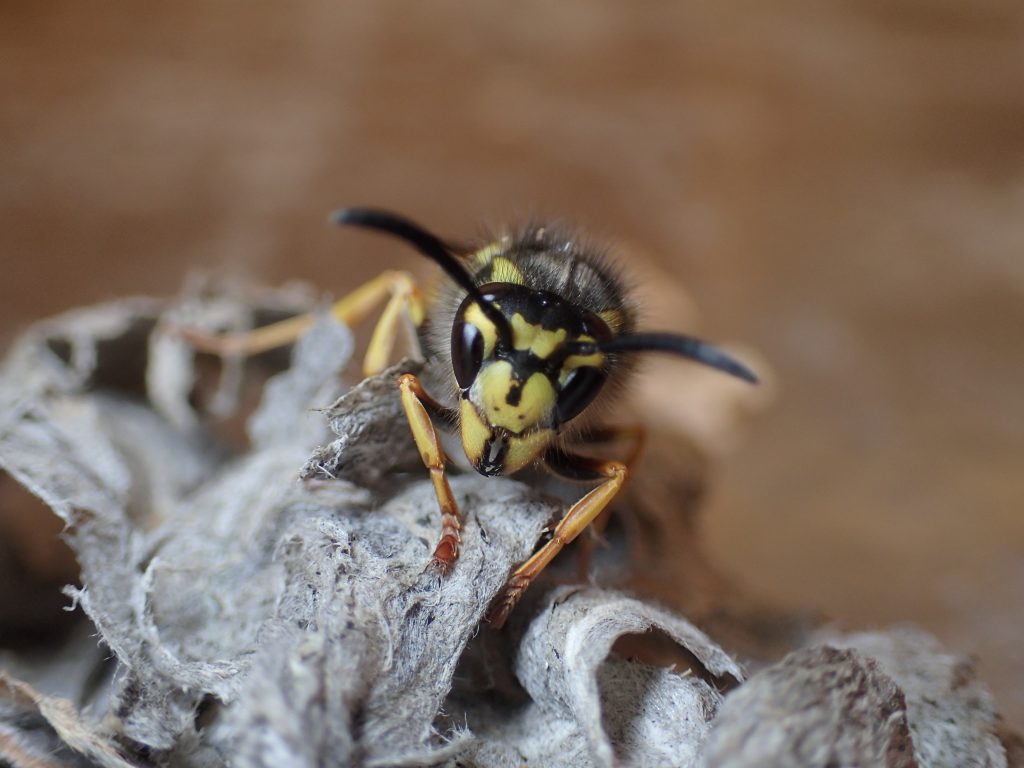
Temuka is abuzz with the sound of . . .wasps!
Gardener John Jackson has found eight nests in the area in the past two weeks.
Mr Jackson said it was a troubling rise in numbers.
He felt the irate insects were being lured into town by a ‘‘bumper year for fruit’’.

He was concerned as to where else they had settled in town, and — more importantly — who else they shared the garden with.
If a toddler was stung while out playing in the garden — especially those under 18 months old — they might not have the language to articulate what the problem was; leaving them vulnerable to being stung multiple times.
With 70 gardens on his rounds, some nests have been found under houses, in flax bushes, and tree stumps.
He wanted to encourage people to check their property and ‘‘observe if there are wasps, and — if there are — watch where they go’’.
He advised against trying to tamper with or put powder around a nest during daylight.
‘‘When you interfere, they are so vicious.’’
He said the best time to deal to it was last thing at night.
‘‘Do it when it’s cool and dark. Because — like us — they sleep at night.’’
Mr Jackson said there were exterminators who could deal to the problem, but he encouraged people to try to prevent the problem too.
With fruit dropping off trees — or being blown off — and being left untouched, it became a ‘‘natural attraction’’ to the insect.
In general, wasps liked to build nests near a source of food.
‘‘The fruit on the ground is the sweetest and most delicious fruit for them.’’
He advised people to give away unused fruit to a foodbank or in a community group to deter wasps setting up shop in a close proximity.
Thinning fruit was perfect for this, as it produced apples that were larger and less likely to have brown rot, which reduced the amount of waste.
He said some people had mentioned swarms of wasps heading across town, but he wanted to reassure them that wasps travelling in swarms was very uncommon.
‘‘It was most likely bees.’’




